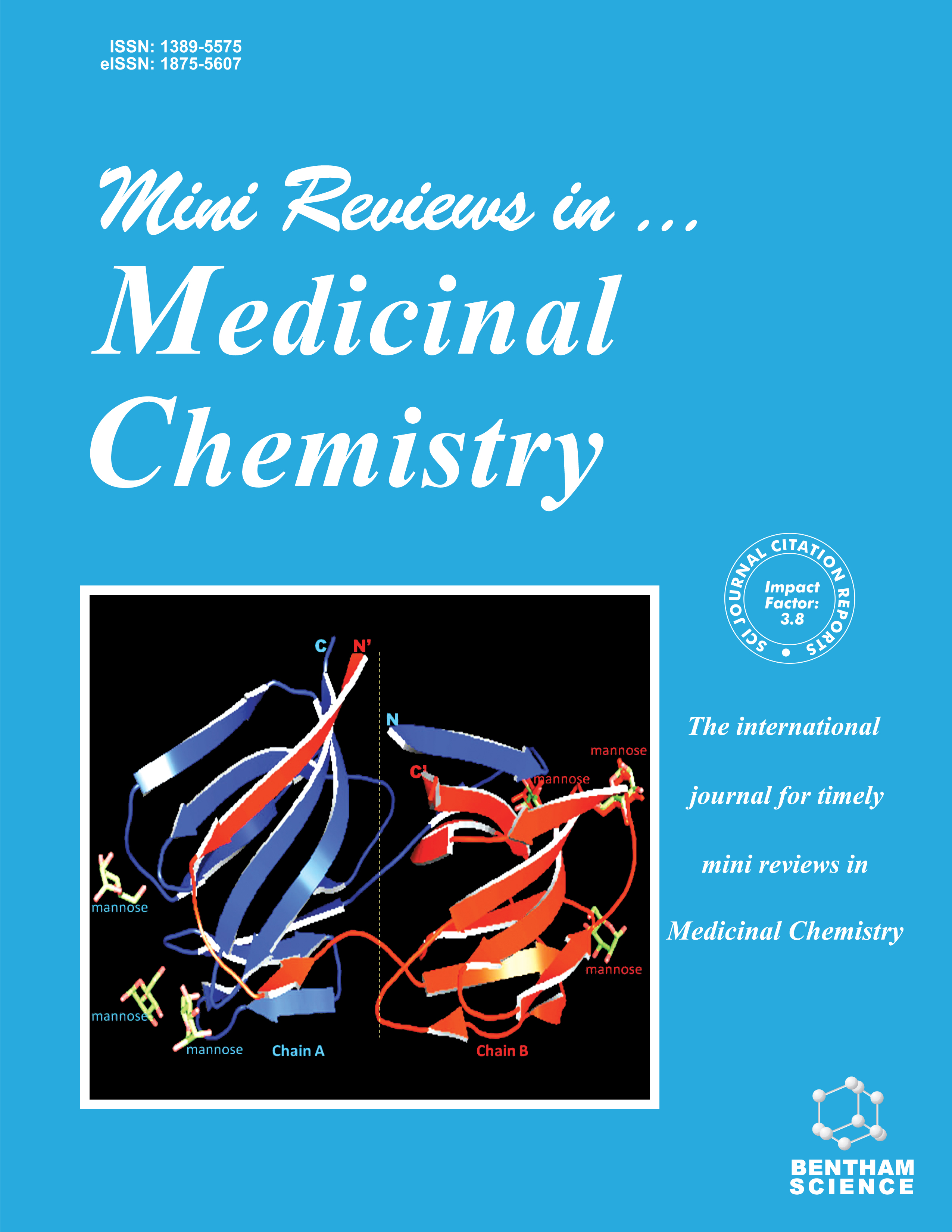-
oa Editorial [Hot topic: (Part I) Recent Trends in Anti-Cancer Drug Discovery (Guest Editor: Fazlul H. Sarkar)]
- Source: Mini Reviews in Medicinal Chemistry, Volume 10, Issue 5, May 2010, p. 357 - 358
-
- 01 May 2010
Abstract
BIOGRAPHY Fazlul H. Sarkar, Ph.D. is a professor of pathology at Karmanos Cancer Center, Wayne State University School of Medicine with a track-record of cancer research for 30 years. His research is focused on understanding the role of a “master” transcription factor, NF-κB and the regulation of its upstream and downstream signaling molecules in solid tumors. Moreover, his focused research has also been directed toward elucidating the molecular mechanisms of action of “natural agents” and synthetic small molecules for cancer prevention and therapy. He has done a tremendous amount of work in vitro and in vivo, documenting that several “natural agents” could be useful for chemopreventive research. Most importantly, his work has led to the discovery of the role of chemopreventive agents in sensitization of cancer cells (reversal of drug-resistance) to conventional therapeutics (chemo-radiotherapy). He is one of the pioneers in developing natural agents such as Isoflavones, Curcumin and Indole compounds like DIM (B-DIM) for clinical use, and his basic science research findings led to the initiation of multiple Clinical Trials in breast, pancreas and prostate cancers at the Karmanos Cancer Institute. He is a perfect example of a true translational researcher bringing his laboratory research findings into clinical practice. Dr. Sarkar is also involved in several collaborative projects including breast, lung and pancreatic cancer for both pre-clinical and phase II clinical trials with other scientists within the institution as well as collaborative work with basic scientists and physician scientists at the MD Anderson Cancer Center. He has published over 350 original scientific articles and written more than 50 review articles and book chapters. He has been continuously funded by NCI, NIH and the Department of Defense (DOD). Dr. Sarkar has trained numerous pre-doctoral and post-doctoral students throughout his last 30 years of cancer research career. In addition, Dr. Sarkar has served and still serving on a number of departmental, university and national committees, and continues to serve both NIH and DOD study sections including NIH program projects, SPORE grants and Cancer Center Core grants (site visit) for many NCI-designated Comprehensive Cancer Center. He serves in an important role as a Senior Editor of the journal “Molecular Cancer Therapeutics” and Associate Editor and in the Editorial board of many biomedical journals. EDITORIAL PERSPECTIVES A series of thirteen articles has been assembled for the theme “Recent Trends in Anti-Cancer Drug Discovery” for the journal of “Mini Reviews in Medicinal Chemistry (MRMC)”. These articles are uniquely focused on anti-cancer drugs especially those that are either derived from “natural sources”, i.e., “natural agents” or their synthetic analogs and/or novel synthetic and targeted agents with anti-cancer activity. These articles represent “state-of-our-knowledge” on emerging concepts in drug discovery which are intimately linked with the biology of cancer cells at large. This thematic issue is published as volume 10 in two parts, the first part is published as issue 5 and the second part is published as issue 6. The first in this series is from the laboratory of Dr. Anant whose article is focused on “Cancer Stem Cells: a novel paradigm for cancer prevention and treatment”, which is an emerging area in cancer research especially because targeted killing of cancer stem-like cells are imperative toward achieving complete eradication of tumors. In addition to the discussion on the role of cancer stem-like cells in drug development and therapy, the authors have also described the role of natural agents in targeted killing of cancer stem-like cells for cancer prevention and therapy. The next article is from the laboratory of the editor, Dr. Sarkar of this thematic issue of MRMC who provided the perspectives on chemopreventive and therapeutic potential of curcumin analogs in medicinal chemistry. Although naturally found “Curcumin” has been extensively investigated, the lack of systemic as well as target tissue bioavailability of curcumin limits its application in humans. Therefore, many approaches has been taken in recent years for improving the bioavailability of curcumin including novel synthesis of its structural analog, which has been described in this article focusing on prevention of tumor progression and/or treatments of human malignancies....


